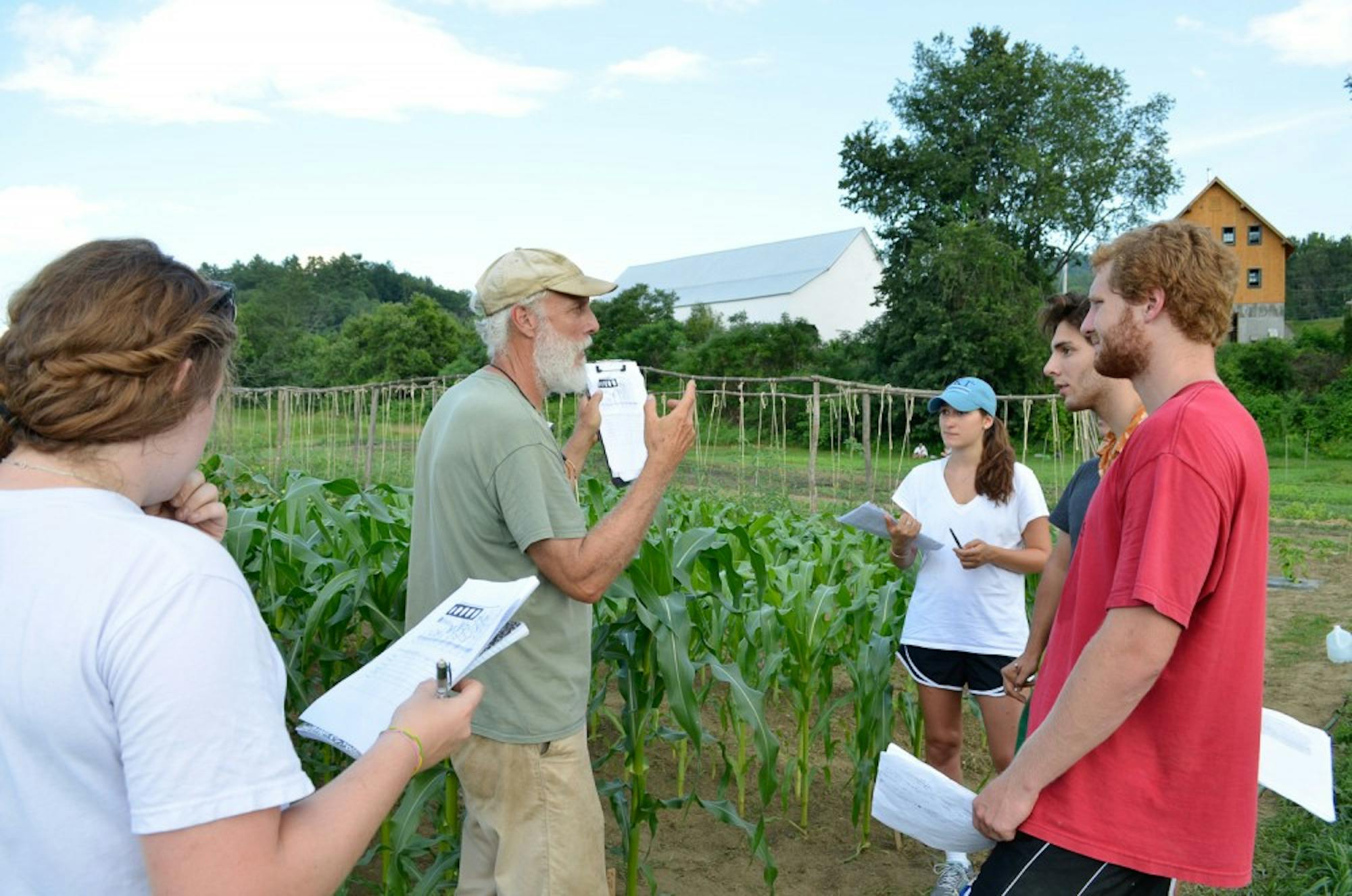College President Phil Hanlon’s proposed initiative to expand and require experiential learning will consist of research experiences, community service, entrepreneurial activities, creative performances and professional experiences.
Director of action-based learning programs Gail Gentes is spearheading her husband’s initiative by cataloging the experiential learning courses Dartmouth currently offers. She has reached out to academic departments, student groups and administrators at the Tuck School of Business, Thayer School of Engineering and Geisel School of Medicine.
“Experiential learning gives students the confidence to innovate, enhances the ability to collaborate with others from different backgrounds, allows them to engage in deep thinking, be effective communicators about difficult issues and apply the power of multiple disciplines to complex problems,” Gentes said.
Many departments already incorporate action-based learning. In just the English and psychology departments alone there are 16 existing courses offered in experiential learning.
Students interested in public policy can engage in experiential learning through the Rockefeller Center’s policy research shop, which bridges the gap between public policy research and civic engagement.
Under the direction of public policy professor Ronald Shaiko, students who have completed one of two public policy research methods courses can advise state, county and local policy makers in New Hampshire and Vermont. As part of the initiative, students testify in front of state and local committees and share their findings, which in some cases prompt legislative action.
The students generate useful analyses on a variety of topics. This fall, a group researched a controversial passage that, if passed, would transport hydroelectric energy from Canada through New Hampshire using both above and underground systems. Another team examined the consistency of contracted state-wide peer counseling services throughout Vermont.
“This is a teaching and learning model — a different way of teaching students where I am not front and center in all of this,” Shaiko said. “I am there to help them and to guide them on their own research.”
The program also differs from traditional undergraduate research, since the model encourages students to take complete ownership of their reports and findings.
“You can work with a faculty member through independent study, but you are doing their research while here you are doing your research,” Shaiko said.
In the English department, professor Jeff Sharlet’s students write nonfiction pieces about the lives of Upper Valley residents, which he then compiles into the online literary journal “40 Towns.”
In the spring, writing professor Sara Chaney will teach a course with psychiatry professor William Hudenko that addresses the autism spectrum through experiential learning.
“Students will be provided with the opportunity to consider autism not as a pathology or stereotype but as a lived experience onto which medical and cultural narratives are superimposed,” Chaney said.
The students will learn about autism through scientific facts, research and interactions with autistic children in partnership with the campus organization Aspire, which provides resources and outreach for autistic children in the Upper Valley.
“Dartmouth’s greatest strength has been its historic commitment to providing the very best undergraduate education,” Gentes said. “We have to innovate to maintain that strength through experiential learning.”
This type of learning will provide students useful skills for their futures, she said.
English professor Aden Evens, however, said experiential learning should be considered a separate category, since he views all learning as experiential.
“If we are engaged in an intense classroom discussion, that constitutes experiential learning because the class learns from that experience,” he said in an email. “When a student writes an academic essay, that is also an experience from which she learns.”
Evens said traditional academic teaching already encompasses action-based learning, and selectively defining experiential learning is “anti-intellectual” because it instead “promotes less contemplative and more hands-on activities.”
At a faculty meeting Monday, Hanlon asked faculty to consider whether the College should brand its commitment to experiential learning through introducing an institutional program, similar to Princeton University’s requirement that all seniors complete a capstone project and Duke University’s DukeEngage, a summer program where students and faculty collaborate on a service project.




